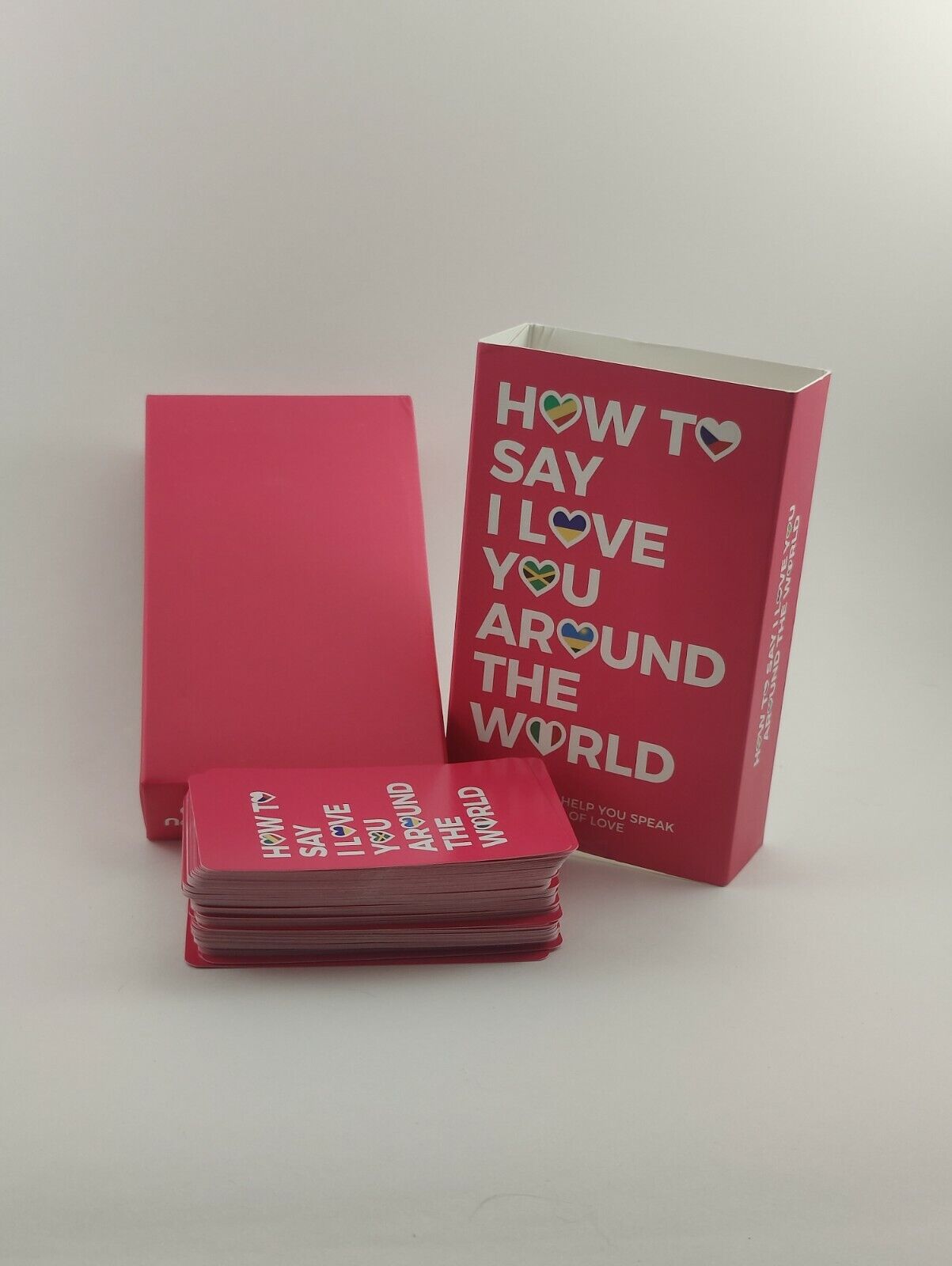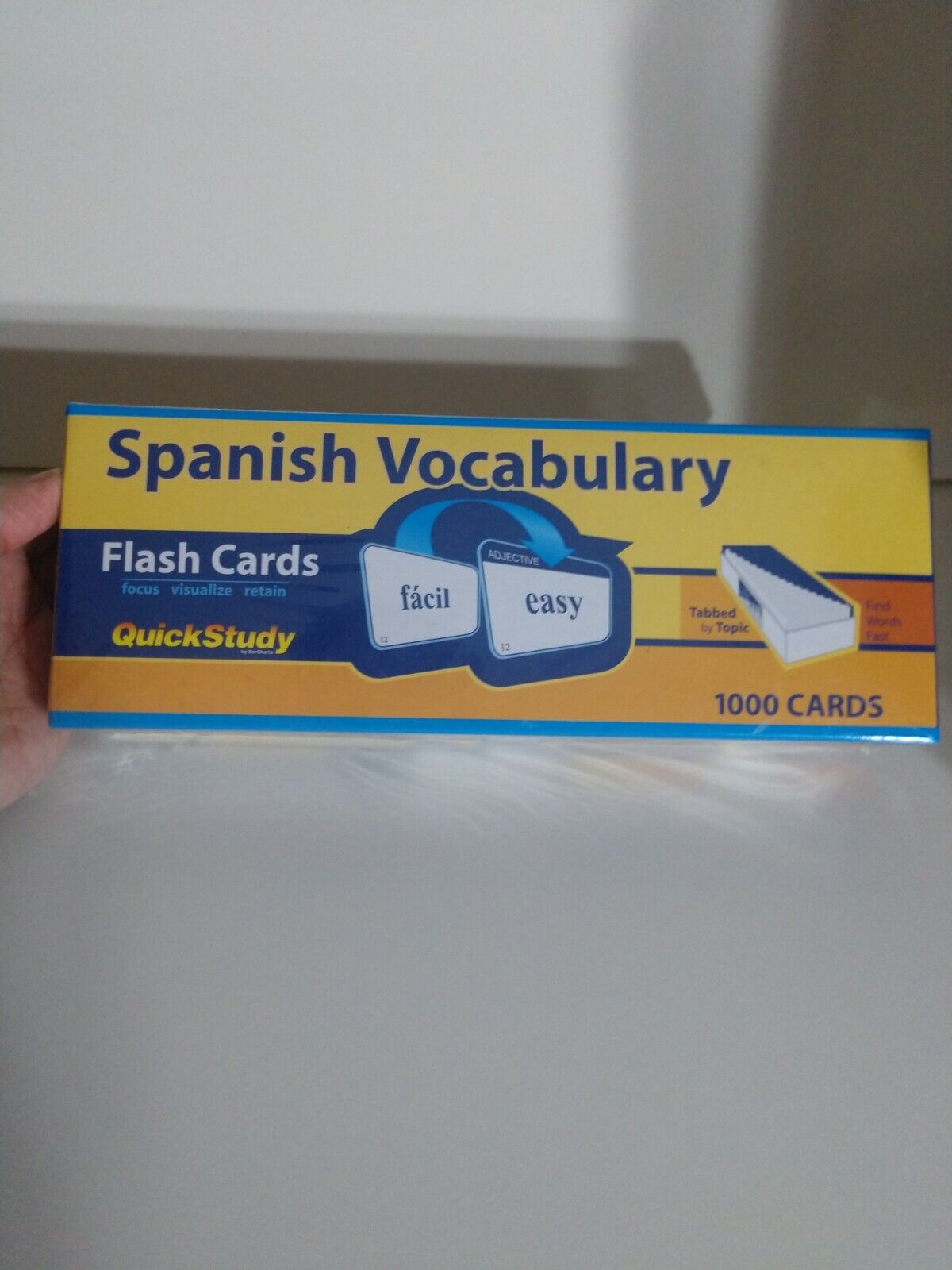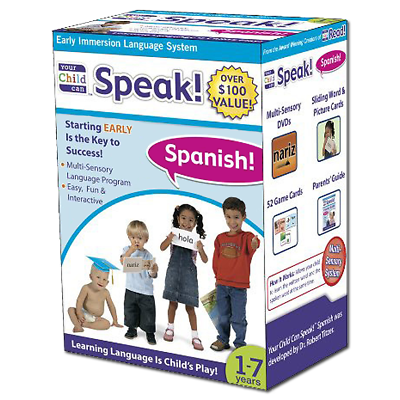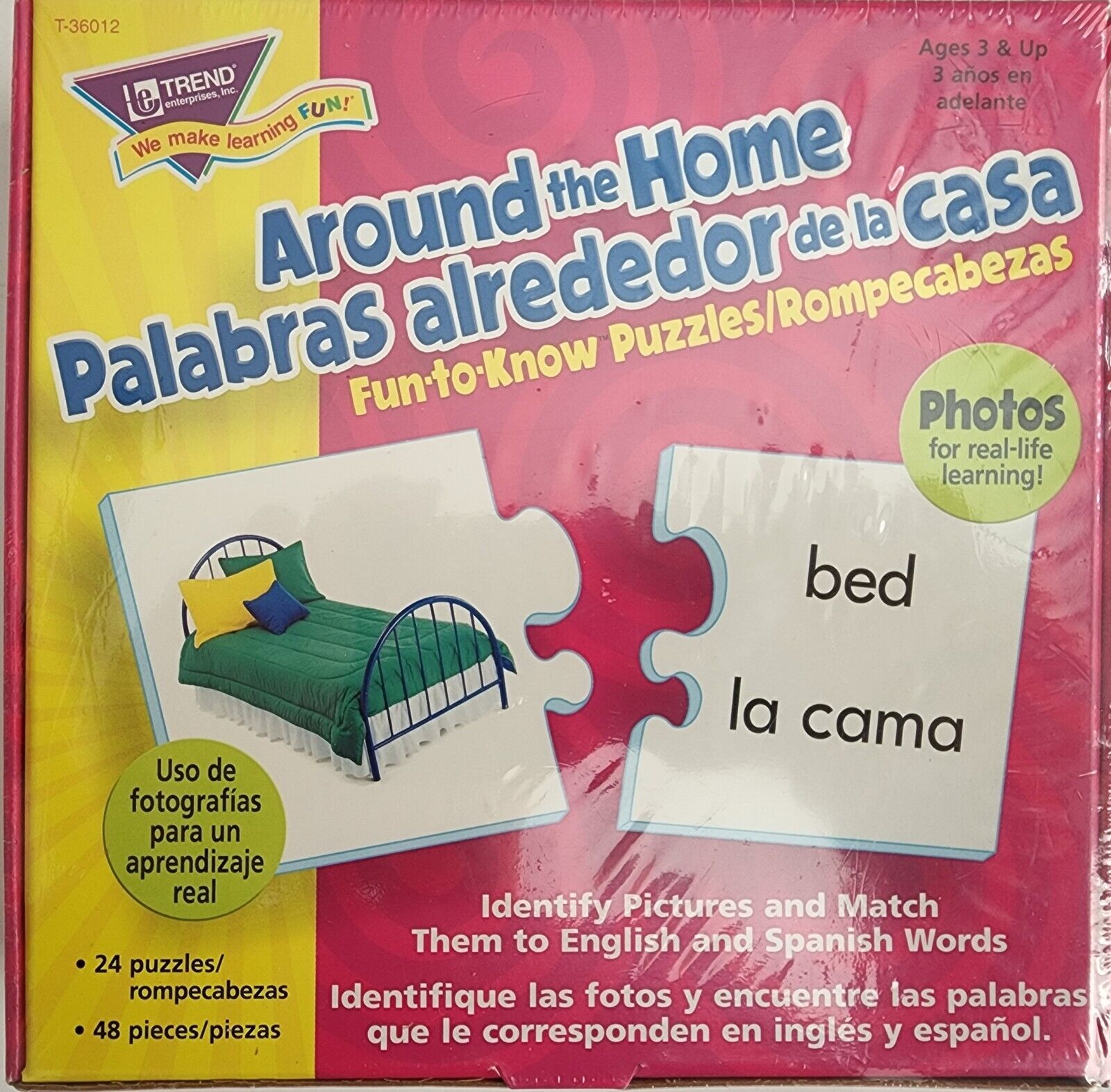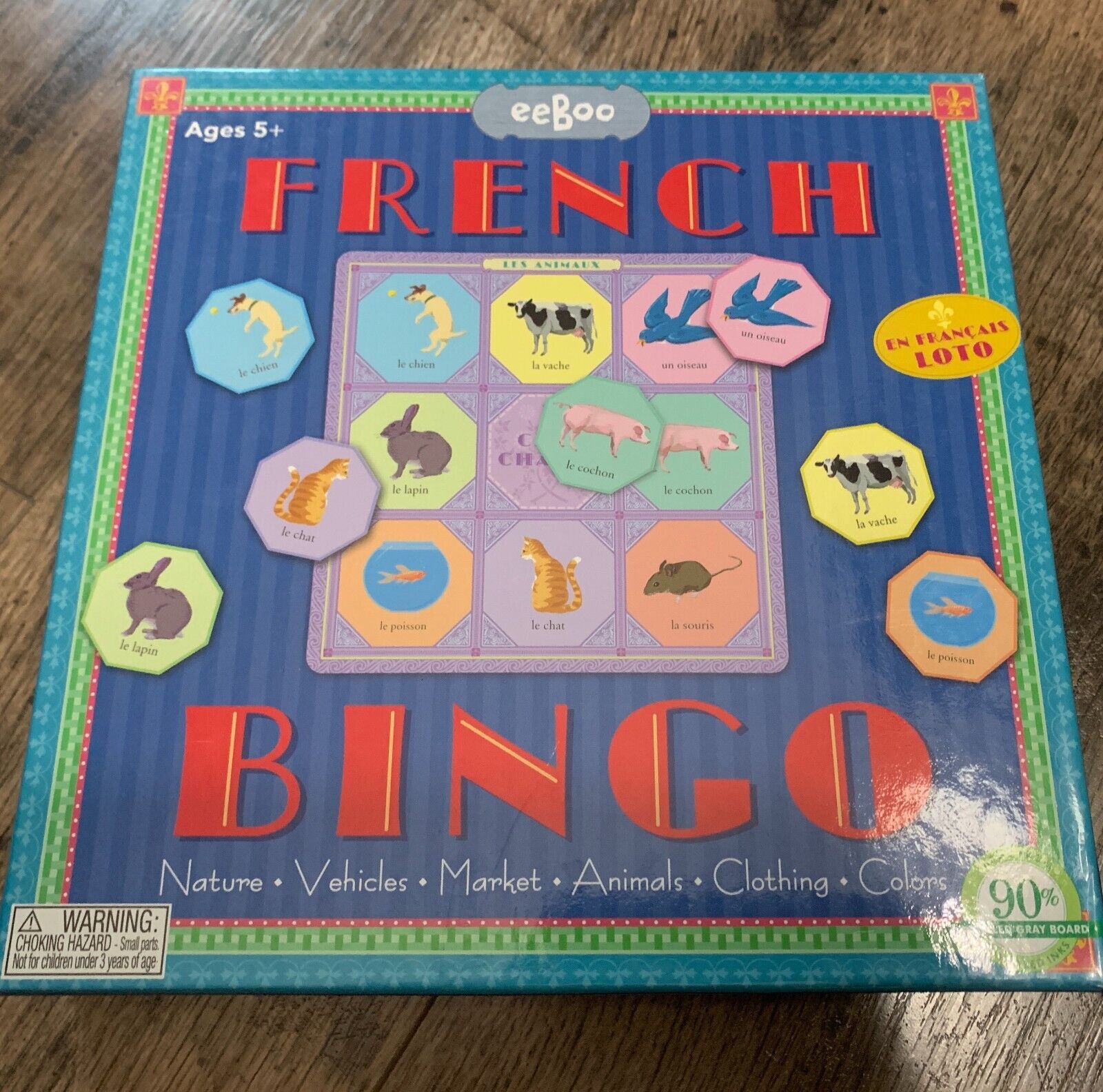-40%
1957 TURN WORD BOX SET SPANISH FOREIGN LANGUAGE ESPANOL ENGLISH FLASH CARD BOOK
$ 16.94
- Description
- Size Guide
Description
1957 TURN WORD BOXED SPANISH LANGUAGE LESSON BOX SET ABDescription:
GREETINGS, FEEL FREE
TO
"SHOP NAKED."
©
We deal in items we believe others
will enjoy and want to purchase.
We are not experts.
We welcome any comments, questions, or concerns.
WE ARE TARGETING A GLOBAL MARKET PLACE.
Thanks in advance for your patronage.
Please Be sure to add WDG to your
favorites list
!
NOW FOR YOUR VIEWING PLEASURE...
TURN WORD
BOXED SPANISH
COPYRIGHT 1957 BY AB TURNWORD,
DJURSHOLM SWEDEN
OVER 300 CARDS WITH OVER 500 WORDS
ARE THE RESULT OF INTERNATIONAL TEAMWORK
BY PUBLISHERS AND LINGUISTS TEACHERS.
ALSO INCLUDES SEVEN POINTS GUIDE
UNESCO RECOMMENDED PHONETIC ALPHABET
+++PLUS+++
500 TURNWORD WORDS
IN 5 LANGUAGES
SOFTCOVER POCKET BOOKLET
FOR GERMAN, SWEDISH, FRENCH, ITALIAN AND SPANISH.
INCLUDES EXTENSIVE VOCABULARY
GLOSSARY, EXERCISES, & GRAMMATICAL SUMMARY.
SET IS OVER 50 YEARS OLD
IT HAS BEEN USED BUT IS IN GOOD CONDITION AND FUNCTIONAL.
SMALL BOOK IS IN GOOD CONDITION.
BOX HAS CLEAR TAPE ON ONE CORNER.
------------------
F
YI
Spanish (español) or Castilian (castellano)* is a Latin-derived Romance language that originated in northern Spain, from whence it gradually spread in the Kingdom of Castile, and subsequently evolved into the principal language of government and trade. It was taken to Africa, the Americas and Asia Pacific when the Spanish Empire was established between the 15th and 19th centuries.
*[Please note that in English Castilian refers only to the variant of Peninsular Spanish spoken in parts of the Iberian Peninsula].
Today, Spanish is an official language of Spain, most Latin American countries, and Equatorial Guinea; 21 nations speak it as their primary language. Spanish also is one of six official languages of the United Nations.Between 322 and 400 million people natively speak Spanish, making it the most spoken Romance language, and possibly the second most-spoken language by native speakers
.
Mexico has the world's largest Spanish-speaking population, and Spanish is the second most-widely spoken language in the United States, and the most popular studied foreign language in U.S. schools and universities. Spanish is among the most popular foreign languages for study in the rest of the nations of the Anglosphere besides the global use of English. The many exotic, Spanish-speaking locales attract many people to the language. Smaller numbers also learn it for potential business and employment ventures, although this is largely confined to the United States. Due to proximity, linguistic similarities, and trade reasons it is also a very popular second language in France, Italy, Portugal, and particularly the southern states of Brazil. It is estimated that the combined total of native and non-native Spanish speakers is approximately 500 million, likely making it the fourth most spoken language by total number of speakers. Global internet usage statistics for 2007 show Spanish as the third most commonly used language on the internet, after English and Chinese.
According to George Weber's point system, Spanish is the third most influential language in the world (after English and French).
Spaniards tend to call this language español (Spanish) when contrasting it with languages of other states, such as French and English, but call it castellano (Castilian), that is, the language of the Castile region, when contrasting it with other languages spoken in Spain such as Galician (gallego), Basque (euskara), and Catalan (catalán). This reasoning also holds true for the language's preferred name in some Hispanic American countries. In this manner, the Spanish Constitution of 1978 uses the term castellano to define the official language of the whole Spanish State, as opposed to las demás lenguas españolas (lit. the other Spanish languages). Article III reads as follows:
El castellano es la lengua española oficial del Estado. (…) Las demás lenguas españolas serán también oficiales en las respectivas Comunidades Autónomas…
Castilian is the official Spanish language of the State. (…) The other Spanish languages shall also be official in their respective Autonomous Communities…
The name castellano is however widely used for the language as a whole in Latin America. Some Spanish speakers consider castellano a generic term with no political or ideological links, much as "Spanish" is in English. Often Americans use it to differentiate their own variety of Spanish as opposed to the variety of Spanish spoken in Spain, or vice-versa, to refer to that variety of Spanish which is considered as standard in the region Spanish evolved from Vulgar Latin, with minor influences from Arabic during the Andalusian period and from Basque and Celtiberian, and some Germanic languages via the Visigoths. Spanish developed along the remote cross road strips among the Alava, Cantabria, Burgos, Soria and La Rioja provinces of Northern Spain, as a strongly innovative and differing variant from its nearest cousin, Leonese speech, with a higher degree of Basque influence in these regions (see Iberian Romance languages). Typical features of Spanish diachronical phonology include lenition (Latin vita, Spanish vida), palatalization (Latin annum, Spanish año, and Latin anellum, Spanish anillo) and diphthongation (stem-changing) of short e and o from Vulgar Latin (Latin terra, Spanish tierra; Latin novus, Spanish nuevo). Similar phenomena can be found in other Romance languages as well.
During the Reconquista, this northern dialect from Cantabria was carried south, and remains a minority language in the northern coastal Morocco.
The first Latin-to-Spanish grammar (Gramática de la Lengua Castellana) was written in Salamanca, Spain, in 1492, by Elio Antonio de Nebrija. When it was presented to Isabel de Castilla, she asked, "What do I want a work like this for, if I already know the language?", to which he replied, "Your highness, the language is the instrument of the Empire."
From the 16th century onwards, the language was taken to the Americas and the Spanish East Indies via Spanish colonization, and in that epoch, Spanish became the principal language of politics and Art in most of Europe; French replaced it in the 18th century.
In the 20th century, Spanish was introduced to Equatorial Guinea and the Western Sahara, the United States, such as in Spanish Harlem, in New York City, that had not been part of the Spanish Empire. For details on borrowed words and other external influences upon Spanish, see Influences on the Spanish language.
(PICTURE FOR DISPLAY ONLY)
------------------------------------------
Thanks for choosing this auction. You may email for alternate payment arrangements. We combine shipping. Please pay promptly after the auction. The item will be shipped upon receipt of funds. Also, INTERNATIONAL CUSTOMS is the international buyers obligation and must be aware of their own customs laws. We cannot be responsible for seized or quarantine purchases. If your shipping costs seems high, it is because we ensure that your purchase is well packed, quickly delivered, and insured to arrive safe and sound. WE ARE GOING GREEN, SO WE DO SOMETIMES USE CLEAN RECYCLED MATERIALS TO SHIP.
Please leave feedback when you have received the item and are satisfied. Please respond when you have received the item.
*****
5*'s
*****
If you were pleased with this transaction, please respond with all 5 stars! If you are not pleased, let us know via e-mail. Our goal is for 5-star service. We want you to be a satisfied, return customer.
Please express any concerns or questions. More pictures are available upon request. The winning bid will incur the cost of S/H INSURED FEDEX OR USPS. See rate calculator or email FOR ESTIMATE. International Bidders are Welcome but be mindful if your country is excluded from safe shipping.
Thanks for perusing
THIS
and
ALL
our auctions.
Please Check out our
other items
!
WE like the curious and odd.
BUY, BYE!!
I
Track Page Views With
Auctiva's FREE Counter


